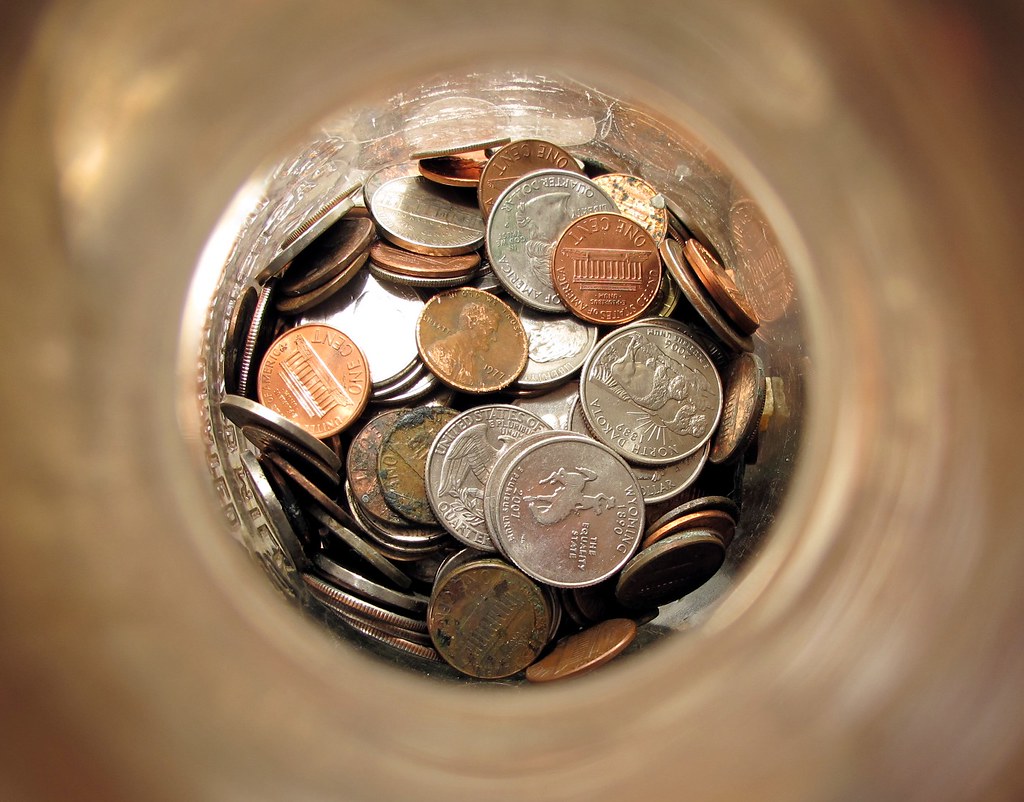
It’s a difficult question: ‘Should I save money or pay off debt first?’
If you cannot decide between the two then you need to compare them to one another. A pros and cons list, if you will.
The first thing to do is to gather the facts by compiling your most recent financial statements.
- Go ahead and grab your most recent bank statement for your savings account and your most recent credit card statements.
- Note your savings interest rate, it should be right around 1-2 percent.
- Now, look at your interest rate on one of your credit cards. It’s probably around 18 percent, right?
If you are lucky you might only have a 15 percent on one or two of your credit cards, but that is becoming quite rare in today’s economy.
By doing some simple math when looking at the interest rates it would be hard to swallow the idea of saving money before paying down debt.
Example: You have a credit card with a $5,000 balance at an 18% APR and you are making the minimum payments of $100 per month. According to bankrate.com it will take you a little less than 8 years to pay off that balance, which is not a way to pay off a credit card fast.
Eight years to pay off one balance of one credit card and that is without charging any additional to the card over that eight year period.
Now let’s say that you have an extra $500 a month in disposable income.
You could either apply that extra income to your minimum payment to pay off your credit card early or place that money in a savings account each month.
- Option 1
Let’s choose the first option and put it towards your $100 minimum payment.
Now you are paying $600 a month towards your $5,000 balance. In only 9 months you will have zero balance.
That’s quite a difference when you think about eight years to nine months to pay off a credit card.
- Option 2
Suppose you chose the second option.
By taking that extra $500 a month and placing it into a savings account that is yielding 1-2 percent interest you have to be aware that your credit card and the card’s interest rate is compounding at the same time, which means you will probably incur more debt in interest alone that you will be adding to your savings account.
Another example would be having $20,000 in savings earning 2 percent interest and having about $20,000 owed to a credit card at a 15 percent APR.
You may be earning 2 percent on that savings account; however, you are gaining 15 percent of additional debt on your credit card, assuming that no new charges are being placed on it.
At the end you are gaining an extra 13 percent each year in debt by not paying off that credit card then you would by saving that same amount of money for the full year.
It is still hard to know whether paying off debt is the best financial move for you or if you should save for that rainy day because you never know what could be around the next corner.
Emergency fund an option?
Have you heard of the term emergency fund?
Emergency funds are becoming increasingly popular and for good reason.
It’s a savings fund with a purpose to help you out of those sticky situations that arise.
Establish an emergency fund with a specific goal, like $1,000 or $5,000.
Then put your savings split of your disposable monthly income into your emergency fund.
Once you hit your goal, stop putting money into it. Take that money and put it towards paying down your debt.
Determine goals, financial feasibility
Remember paying off debt and saving money are both equally important financial goals.
You have to decide what the goal is for you and your family’s financial dream. Once you see that goal in your mind then you have to decide on the best steps for you to reach it.
If you are aggressive with paying down your debt and do not have an emergency fund established then know that you will only have those credit cards to fall back on when a financial emergency arises.
It’s best to be prepared so that when a financial issue arises you are able to take care of it without derailing your plan for debt pay-off.
The idea of paying off debt is nice, but if you are not in a job that provides a stable, dependable income then perhaps you need to be more aggressive with saving money first over paying off debt.
Once you have built up a comfortable safety net built up in savings then you can turn your focus onto paying off debt.
Just be sure that, if for any reason, you tap into your savings account that you stop paying down debt to build back up your emergency fund.
It would make no sense to pay off debt just to have to charge an emergency to a credit card.
I hope this has provided information to you about the question, “should I save money or pay off debt?”
Originally posted 2023-01-06 17:35:54.

